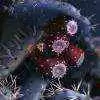-
Welcome to Celiac.com!
You have found your celiac tribe! Join us and ask questions in our forum, share your story, and connect with others.
-
Celiac.com Sponsor (A1):
Celiac.com Sponsor (A1-M):
-
Get Celiac.com Updates:Support Our Content
Iron Supplements - Queasy Feeling?
-
Get Celiac.com Updates:Support Celiac.com:
-
Celiac.com Sponsor (A17):
Celiac.com Sponsor (A17):
Celiac.com Sponsors (A17-M):
-
Recent Activity
-
- xxnonamexx replied to xxnonamexx's topic in Post Diagnosis, Recovery & Treatment of Celiac Disease27
My journey is it gluten or fiber?
What about digestive enzymes that I hear help? I take align 5x probiotics daily. -
- CatS commented on Scott Adams's article in Winter 2026 Issue5
Are Gluten-Free Processed Foods Making You Sick? (+Video)
Thank you! It’s very easy to make seedy crackers. They are much more nutritious than commercial gluten free bread,- gluten-free
- gluten-free diet
- (and 8 more)
-
- Samanthaeileen1 replied to Samanthaeileen1's topic in Post Diagnosis, Recovery & Treatment of Celiac Disease5
Thoughts? Non-endoscopic Celiac diagnosis in two year old
thank you RMJ! That is very helpful advice. Good to know we aren’t crazy if we don’t do the endoscopy. We are going to try the gluten free and see how symptoms and levels improve. thank you Wheatwacked (love the username lol) that is also reassuring. Thankfully she has an amazing and experienced pediatrician. And yesss I forgot to mention the poo... -
- Wheatwacked replied to Samanthaeileen1's topic in Post Diagnosis, Recovery & Treatment of Celiac Disease5
Thoughts? Non-endoscopic Celiac diagnosis in two year old
My son was diagnosed when he was weaned in 1976 after several endoscopies. Given your two year old's symptoms and your family history and your pediatrition advocating for the dx, I would agree. Whether an endoscopy is positive or negative is irrelevant. That may happen even with endoscopy. Pick your doctors with that in mind. In the end... -
- RMJ replied to Samanthaeileen1's topic in Post Diagnosis, Recovery & Treatment of Celiac Disease5
Thoughts? Non-endoscopic Celiac diagnosis in two year old
So her tissue transglutaminase antibody is almost 4x the upper end of the normal range - likely a real result. The other things you can do besides an endoscopy would be: 1. Genetic testing. Unfortunately a large proportion of the population has genes permissive for celiac disease, but only a small proportion of those with the genes have it. With...
-






Recommended Posts
Archived
This topic is now archived and is closed to further replies.